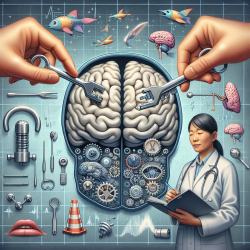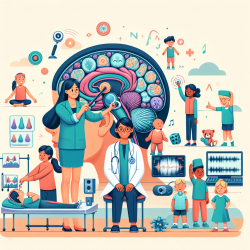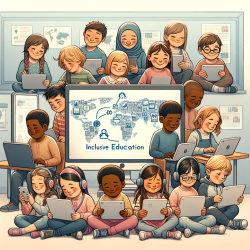Empowering Children Through Effective IEP Planning
Individualized Education Programs (IEPs) are pivotal in tailoring educational experiences to meet the unique needs of children in special education. As school social workers, you play a crucial role in crafting and executing these plans. By leveraging data-driven strategies, we can ensure that every child has the opportunity to thrive academically and socially.
The Role of Data in IEP Planning
Data is the cornerstone of effective IEP planning. By analyzing comprehensive assessments and performance metrics, school social workers can make informed decisions that directly impact a child's educational journey. This data-driven approach not only helps in identifying the specific needs of each child but also in setting realistic and achievable goals.
For instance, regular progress monitoring can highlight areas where a child excels or needs additional support. This information is invaluable in adapting teaching methods and resources to better suit individual learning styles. Moreover, data can facilitate transparent communication among educators, therapists, and families, ensuring that everyone is aligned and working towards common objectives.
Integrating Online Therapy into IEPs
Incorporating online therapy services, such as those offered by TinyEYE, into IEPs can significantly enhance the support provided to children. Online therapy offers a flexible and accessible solution, particularly for schools facing resource constraints or geographical challenges. It ensures that students receive consistent and high-quality interventions, regardless of their location.
Through virtual platforms, children can engage with experienced therapists who specialize in various areas, including speech-language pathology and occupational therapy. This integration allows for a seamless and comprehensive approach to addressing the diverse needs of children in special education.
Best Practices for IEP Meetings
IEP meetings are an essential component of the planning process, providing a forum for collaboration and decision-making. Here are some best practices to ensure productive and meaningful IEP meetings:
- Preparation: Review all relevant data and documentation beforehand to understand the child's current performance and needs.
- Collaboration: Encourage open communication among all team members, including parents, teachers, and therapists, to gather diverse perspectives and insights.
- Goal Setting: Establish clear, measurable, and achievable goals that are tailored to the child's unique abilities and aspirations.
- Follow-Up: Implement a structured follow-up process to monitor progress and make necessary adjustments to the IEP.
Conclusion
By embracing a data-driven approach and integrating innovative solutions like online therapy, school social workers can significantly enhance the effectiveness of IEPs. This not only empowers children to reach their full potential but also fosters a supportive and inclusive educational environment. At TinyEYE, we are committed to supporting schools in delivering exceptional outcomes for every child in special education.










